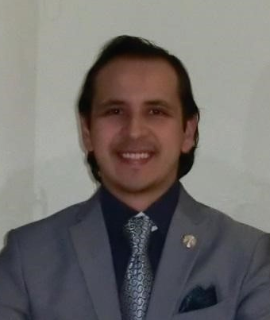Title : Pioneering Multidimensional Microbial Synthetic Biology: Systems Metabolic Engineering and Protein Engineering for Biodiesel Production
Abstract:
The continuous requirement of transportation biofuels has brought the necessity to establish alternatives permitting low-cost production of biodiesel while being environmentally friendly. Biodiesel production has been achieved utilizing yeast Saccharomyces cerevisiae by employing respective enzymes that catalyze the synthesis of fatty acid ethyl esters (FAEEs) based on activated fatty acids (as fatty acyl-CoA molecules) and ethanol (ethyl alcohol), as reactants. Several enzymes were tested and successfully heterologously introduced in yeast by expressing their codon-optimized gene for expression in a yeast host under the strong promoter TEF1p using plasmid pSP-GM2; these were wax ester synthases from bacteria Acinetobacter baylyi ADP1, Marinobacter hydrocarbonoclasticus DSM 8798, Rhodococcus opacus PD630, Psychrobacter articus 273-4 and animal Mus musculus C57BL/6. In conclusion the acyltransferase/wax ester synthase MhWS2 from oil bacteria Marinobacter hydrocarbonoclasticus was the highliest active in yeast S. cerevisiae with 8.1 pmol/(mg protein•min).
Through metabolically engineering the cell mutants further, metabolism was widely modified for increasing biodiesel production by eliminating fatty acid-consumption competitive pathways, therefore augmenting the fatty acid pool. This was achieved by deleting genes ARE1, ARE2 (responsible for steryl ester biosynthesis), LRO1 and DGA1 (responsible for triacylglycerol biosynthesis) and POX1 (allowing β-oxidation), this conferred a 5-fold increase of FAEEs formation (17.2 mg/L). Right after, the acyltransferase/wax ester synthase MhWS2 was overproduced in yeast cells by chromosomal integration of its codon-optimized gene ws2. Then the gene copy number was enhanced by integrating it in δ-regions, this resulted in 7.5-fold higher biodiesel production in a gradually evolved strain tolerant to 20 mg/mL antibiotic G418 with an enzyme activity of 62 pmol /(mg extract•min).
Furthermore, Protein Engineering of two natural catalysts (selected acyltransferase/wax ester synthase MhWS2 from oil bacteria Marinobacter hydrocarbonoclasticus; and α/β-hydrolase Eeb1p homolog to yeast Saccharomyces cerevisiae) was addressed. In these subprojects, directed evolution of these two enzymes was achieved for favoring the synthesis of biodiesel by augmenting their efficiency and altering selectivity towards biocatalyzing FAEEs of desired chain length (C16 and C18, either saturated or monounsaturated). Starting with random mutagenesis of the respective codifying genes (ws2 and EEB1) allowed libraries of random point-mutations. Then library screening was conducted for reducing the CFU (colony formation unit) number; since lipotoxicity was employed as screening method due the condition of the yeast mutants, modifying to a weaker promoter was needed: KEX2p was then further applied. Ultimate selection of the best evolved variants of these enzymes was performed: variants MhWS2-v11 (65.3% increment when compared to natural MhWS2) and Eeb1p-v04 (45.7% increment when compared to natural Eeb1p) were the best candidates for FAEEs biosynthesis, since they evolved toward preferring utilizing as reaction substrates: ethanol and fatty acyl-CoA molecules of 16 to 18 carbon atoms in aliphatic chain. MhWS2-v11 possesses five residue substitutions, while Eeb1p-v04 has 19 residue substitutions. In this case of scientific and technological studies, an advanced biofuel of the third generation has been produced: green biodiesel.
Audience Takeaway:
- During this lecture, the audience will be able to learn the basics and principles of this emerging field of Biotechnology, at a first sight.
- The overall scientific and technological approach will be presented and described toward the understanding for application of the methods and techniques required for implementing and developing this field at laboratory scale, principles for pilot plant scaling and industry installation.
- By employing intellectual assets of the mutants and variants achieved, a more practical method can function and be up-process implemented, making the production process more efficient, reach higher yield and more environmentally friendly with a higher sustainability development.




